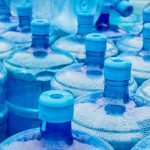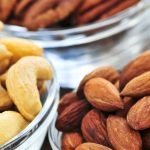Many people have trouble starting the day without a big mug of coffee. The caffeine provides a pick me up for those who aren’t naturally early risers. But even decaf drinkers love the smell and flavor of their java. And new research suggests that it might be wise not to skip that morning brew. In fact, it appears that having several cups a day may offer some protective benefits to your liver.
The study, which took place at the National Cancer Institute in Bethesda, Maryland, found that individuals who consume at least three cups of coffee daily tend to have lower levels of abnormal liver enzymes that signify damage within the organ.1 Xiao, Q; et al. “Inverse associations of total and decaffeinated coffee with liver enzyme levels in HNANES 1999-2010.” Hepatology. 13 August 2014. Accessed 15 October 2014. http://www.ncbi.nlm.nih.gov/pubmed/25124935 The subjects were 27,793 American adults who were 20 or older. They were participants in the longitudinal National Health and Nutrition Examination Survey (NHANES), and they kept a log of the quantity of coffee they drank each day.
Blood samples were also taken from each of the volunteers to assess the levels of certain enzymes that are indicative of liver function. The enzymes measured were alanine aminotransferase (ALT), aspartate aminotransferase (AST), alkaline phosphatase (ALP), and gamma glutamyl transaminase (GGT). In a normal, well functioning liver small traces of these enzymes are found circulating in the blood. However, elevated levels of these enzymes are a sign of poor liver health.
The subjects who drank three cups or more of coffee on a daily basis were found to have lower levels of all of these liver enzymes than did their peers who abstained from drinking coffee. If that sounds to you like a lot of caffeine to consume every day, the good news is that decaf was determined to be equally as effective as caffeinated coffee in providing advantages to the liver.
And that’s not the only newsworthy information on coffee’s positive effects on the liver. Another recent study, this one out of the Keck School of Medicine at the University of Southern California in Los Angeles, showed that drinking a few cups of coffee a day may even help protect you from liver cancer and lower the risk of dying from chronic liver disease.2 “Higher coffee intake may reduce liver cancer risk.” University of Southern California. 16 May 2014. Accessed 17 October 2014. http://hscnews.usc.edu/higher-coffee-intake-may-reduce-liver-cancer-risk This was based on research that began in the mid-1990s, involving more than 215,000 men and women residing in California and Hawaii.
The subjects were followed for 18 years, during which time 451 of the participants were diagnosed with hepatocellular carcinoma (HCC), the most common form of liver cancer, and 654 of the participants died due to chronic liver disease (CLD). However, the individuals who typically consumed two to three cups of coffee daily were found to have a 38 percent lower risk of developing HCC, and those who consumed four or more cups daily had a 41 percent lower risk as compared to those who drank no coffee. And when CLD was considered, those who drank two to three cups daily had a 46 percent reduced risk, and those who drank four or more cups daily had an incredible 71 percent drop in risk of mortality from the condition versus the volunteers who were not coffee drinkers.
Considering coffee’s tremendous popularity, these findings will give many people reason to rejoice. After all, the liver is an extremely important organ responsible for helping rid the body of toxins. Just keep in mind that despite its growing list of benefits, coffee is also associated with insomnia, irritability, and gastrointestinal issues. A 2012 study at Brigham and Women’s Hospital in Boston even found that drinking caffeinated coffee was associated with the development of a particular form of glaucoma.3 Pasquale, Louis R.; et al. “The Relationship between Caffeine and Coffee Consumption and Exfoliation Glaucoma or Glaucoma Suspect: A Prospective Study in Two Cohorts.” Investigative Ophthalmology & Visual Science. 23 August 2012. Accessed 17 October 2014. http://www.iovs.org/content/53/10/6427.abstract So while having four or five cups a day may sound wonderfully protective for your liver, it may also produce a number of not-so-wonderful results. If you are going to drink coffee daily, try to keep it to three cups a day noted in the study and drink them in the morning to give the caffeine the maximum amount of time to dissipate before bedtime approaches. And while decaf might appear to offer many of the advantages without the problems of caffeine, it should be noted that the drinking of decaf has been linked to elevated blood fat levels and an increased risk of heart attacks.4 Charlene Laino “Decaf Coffee May Raise Heart Risks.” WebMD Nov. 16, 2005. (Accessed 17 Oct 2014.) http://www.webmd.com/heart-disease/news/20051116/decaf-coffee-may-raise-heart-risks
References
| ↑1 | Xiao, Q; et al. “Inverse associations of total and decaffeinated coffee with liver enzyme levels in HNANES 1999-2010.” Hepatology. 13 August 2014. Accessed 15 October 2014. http://www.ncbi.nlm.nih.gov/pubmed/25124935 |
|---|---|
| ↑2 | “Higher coffee intake may reduce liver cancer risk.” University of Southern California. 16 May 2014. Accessed 17 October 2014. http://hscnews.usc.edu/higher-coffee-intake-may-reduce-liver-cancer-risk |
| ↑3 | Pasquale, Louis R.; et al. “The Relationship between Caffeine and Coffee Consumption and Exfoliation Glaucoma or Glaucoma Suspect: A Prospective Study in Two Cohorts.” Investigative Ophthalmology & Visual Science. 23 August 2012. Accessed 17 October 2014. http://www.iovs.org/content/53/10/6427.abstract |
| ↑4 | Charlene Laino “Decaf Coffee May Raise Heart Risks.” WebMD Nov. 16, 2005. (Accessed 17 Oct 2014.) http://www.webmd.com/heart-disease/news/20051116/decaf-coffee-may-raise-heart-risks |












Thanks for the article. I
Thanks for the article. I adore coffee but I hate being addicted to anything. Coffee gives me horrible headaches and turns my stomache into a roller coaster. I love the caffeine buzz but have to force myself to limit myself to as little of coffee as I can muster the willpower.
My question is: what OTHER ways can you tell us about that help the liver?
Also: does black tea have similar benefits? I love black tea and never have the digestive upsets from it. Not sure about the cause of the headaches with black tea.
Also: do some kinds of coffee cause more upsets and headaches than others? Or does this count only on individual basis? The worst headaches I have gotten from coffee was from Starbucks and Dunkin Donuts. What do they put in those drinks?
Hi Judy,
Hi Judy, I would do a search on our site about the liver and you will find TONS of articles. Have you looked at our liver detox? That is much more powerful than coffee for sure.
COFFEE – NOT GOOD for
COFFEE – NOT GOOD for ADRENAL people!!
Sounds like you may be
Sounds like you may be sensitive to caffeine, like me, do you like decaf? I mix it up, never having more than a few sips of strong coffee.
Isn’t headaches from coffee due to dehydration? Do you drink a ton of water with coffee? Or try some salt to help body absorb the water…. HTH.
Does this include instant
Does this include instant coffee?
Mr.Jon sometime perhaps
Mr.Jon sometime perhaps inadvertently you give some wrong message. Informations obtained through secondary sources are not always correct, because there are many hidden associated factors, which go unreported. Therefore, homeopaths believe in administering medicnes on themselves, before arriving at any conclusion. Somewhere you contradicted me that there is no evidence of Echinecea causing any malfuctioning in thyroid normal function, but it does particularly in hypothyroid case, I arrived at this finding by trying Echinecea on myself and on my patients. Similarly coffee and tea consumption triggers malfunctioning of liver enzymes, that is why digestive functions deteriorate. Tea and coffee consumption also incites parkinson’s disease in the long run, which is not reversible. The main cause of irritable bowel symdrome and colitis are also related to excessive drinking of tea and coffee, even if the patient is non-alcoholic. This is also based on my personal findings over the years.
Dr Chhetri:
Dr Chhetri:
In our response to your previously expressed concerns about Echinacea and the thyroid, we did not say that there was “no evidence.” What we said is that any reports reports making that connection are “ uncorroborated and extremely rare at best.” How rare? Quite simply, Echinacea is one of the most popular herbal supplements in the United States and throughout much of the rest of the world. Considering how many tens of millions of people use Echinacea regularly (hundreds of millions over the years) and how few of them have ever demonstrated any thyroid problems, any reports of such issues associated with Echinacea truly quality as incredibly rare. If you are finding the opposite in yours and your patients’ experience, that truly falls outside the norm.
Coffee, whether decaf or
Coffee, whether decaf or regular, makes my joints swell. I drank it all my life until I gave it up for Lent last spring a year and a half ago. Thanks to God, my big ugly joints are nearly normal. Hope this helps others. My doctor was astounded!
Mr.Jon you may be right, but
Mr.Jon you may be right, but with experiences new evidences appear into limelight. No theory therefore, is immuatable.